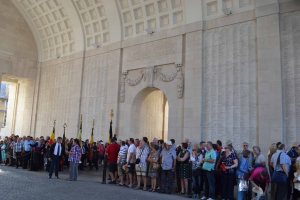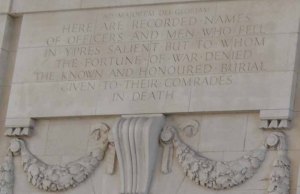
One hundred years ago Australians woke to the news that the Britain had declared war on Germany. In 2014 it’s difficult to appreciate how enmeshed Australia’s politics and life was with Britain’s, but the summary on the front page of The Sydney Morning Herald gives us a retrospective glimpse:
“An unparalleled scene in the history of the State Parliament took place in the Assembly yesterday…..Members sprang to their feet and sang the National Anthem (which was then God Save the King) and “Rule Britannia” and gave cheers for the King”. [i]
In the “home country”, the navy was already mobilised and the army was to be mobilised by midnight on 4 August, just an hour of the declaration of war (then the next morning Australian time).
Last night (UK time) many in Britain commemorated the start of this long tragic war by turning their lights out and lighting a candle in remembrance (see twitter #lightsout). In 1914 the declaration of war must truly have seemed a terrifying prospect despite assertions it would all be over before Christmas, but it was not to be in 1914, or 1915, rather more than four long years later.
Already on this first day, in Australia, motor cycle clubs were volunteering members as despatch riders, immigrants of German and Austrian descent rushed to take up Australian citizenship, the St John Ambulance had been placed at the disposal of the Defence Department and men were offering to enlist. The 8th Infantry Brigade had also been mobilised for coastal defence, along with the citizen naval forces. [ii]
Nothing would remain the same in society for decades to come, not least the impact of the loss of the talents, skills and love of the men killed in this battle for freedom. The loss of life, the impact on families, communities, and not least the men who returned was to be incalculable at a local, national and international level. Women would remain single for lack of men to marry, married women would not recognise their husbands as they returned with ferocious injuries to the bodies, and even more inexplicably to those at home, their minds. It astonishes me that more men on the Western Front didn’t lose their minds listening to the repeated noise of guns, artillery and bombs combined with the fear of imminent death or terrible injury. Mercifully the Australian Expeditionary Force, comprised of volunteers, prohibited the execution of a soldier for shell-shock, more often called cowardice.

Those who had lost loved sons, brothers or husbands erected memorials throughout the country to have a tangible reminder of those who had died in foreign lands, often with no known grave. Forlorn and tragically pleading letters from families can be read in the military files of the men, begging for any small item of their loved one’s belongings with no understanding that often they’d been blown to pieces, just like the person who’d owned them. These heart-wrenching letters begged for some small memento to give a child left behind, perhaps one whose father had never even seen them, when men rushed to marry before they left for war.

The walls of the Menin Gate evocatively lists 54,000 men from the British and Commonwealth forces[iii] whose lives were lost on the Ypres/Ieper salient during WWI and who have no known grave. It is sobering to think this is only a part of the losses to the British Empire during this horrendous period.
The ideals of war are the fight for freedom, justice, humanity and home soil and yet “the war to end all wars” with such a fierce loss of life was only to be a precursor to another greater social cataclysm a bare 20 years later with even greater losses of life, both civilian and military, and the massacre of whole communities.
Lest We Forget
[i] SUMMARY. The Sydney Morning Herald (NSW 1842-1954) 5 August 1914 page 1. http://nla.gov.au/news-article 15527541.
[ii] ibid and also http://nla.gov.au/nla.news-article1552795 page 7, Sydney Morning Herald, 6 August 1914.
[iii] http://www.cwgc.org/find-a-cemetery/cemetery/91800/YPRES%20(MENIN%20GATE)%20MEMORIAL

A very moving post Pauleen, I can’t comprehend what it would be like to hear that we were at war.
LikeLiked by 1 person
Neither can I Kirrily and hope I never have to find out.
LikeLike
A beautifully crafted post, Pauleen.
When weill we ever learn?
LikeLiked by 1 person
Thanks Jill. I totally agree …good lyrics for a song.
LikeLike